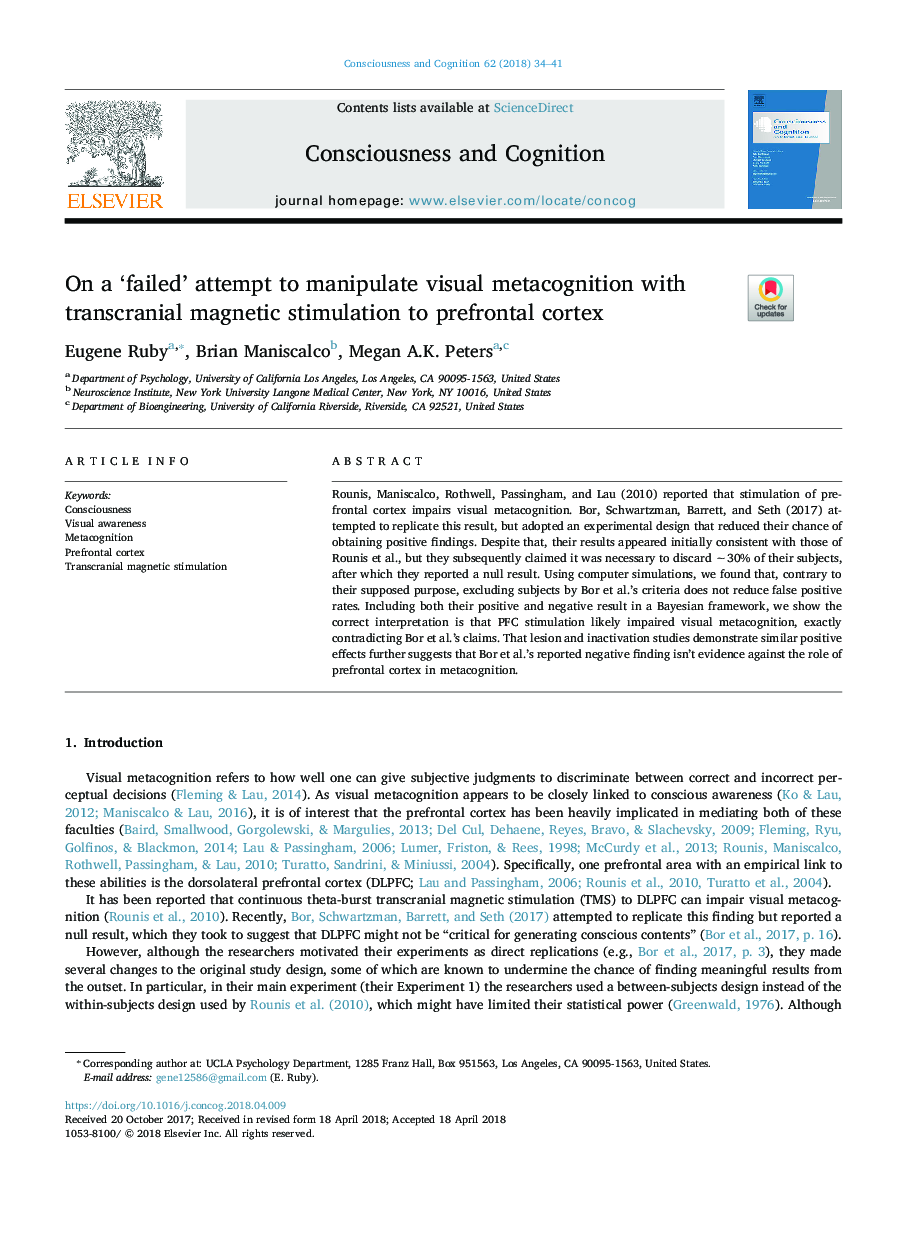| Article ID | Journal | Published Year | Pages | File Type |
|---|---|---|---|---|
| 7287874 | Consciousness and Cognition | 2018 | 8 Pages |
Abstract
Rounis, Maniscalco, Rothwell, Passingham, and Lau (2010) reported that stimulation of prefrontal cortex impairs visual metacognition. Bor, Schwartzman, Barrett, and Seth (2017) attempted to replicate this result, but adopted an experimental design that reduced their chance of obtaining positive findings. Despite that, their results appeared initially consistent with those of Rounis et al., but they subsequently claimed it was necessary to discard â¼30% of their subjects, after which they reported a null result. Using computer simulations, we found that, contrary to their supposed purpose, excluding subjects by Bor et al.'s criteria does not reduce false positive rates. Including both their positive and negative result in a Bayesian framework, we show the correct interpretation is that PFC stimulation likely impaired visual metacognition, exactly contradicting Bor et al.'s claims. That lesion and inactivation studies demonstrate similar positive effects further suggests that Bor et al.'s reported negative finding isn't evidence against the role of prefrontal cortex in metacognition.
Keywords
Related Topics
Life Sciences
Neuroscience
Cognitive Neuroscience
Authors
Eugene Ruby, Brian Maniscalco, Megan A.K. Peters,
